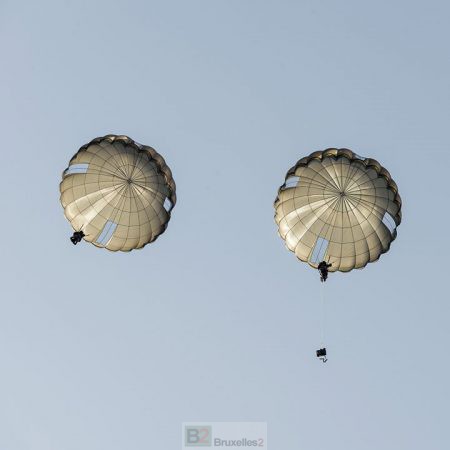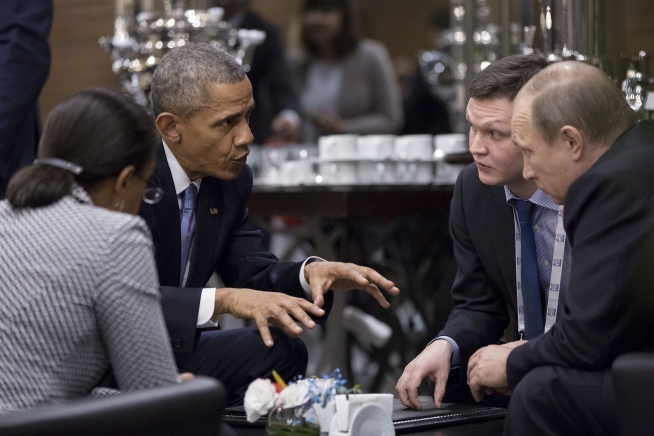PFUE. Europe, this being so complex. When the French soldier prefers NATO
(B2) With the arrival of the French presidency of the European Union, the French military structure (re)discovered a passion for the blue flag with stars. Without great enthusiasm

The slow erasure of European thinking among French soldiers
Since the opening of this blog, we have been able to observe it: little by little, the European spirit which was present in several senior officers (sometimes with criticism) has crumbled over time. He left time for a certain indifference, even barely veiled contempt
Several cumulative effects
Between the particularly intense wind effect of the end of the French presidency in 2008 (under Nicolas Sarkozy), the departure of a whole generation which experienced the first European operations, the almost simultaneous reintegration of NATO which shaped another generation of officers, and the French operations in the Sahel... there are a series of reasons which explain this very weak passion for the European 'thing'. That's an understatement. And in addition, they also mean a weak knowledge of the European world. Exceptions can be counted on the fingers of one hand. Even at the IHEDN (see box) like the IRSEM – the two nerve centers of French military thought – the European tropism has been somewhat left aside. And research refocused on other areas considered more strategic (the Far North, the Indo-Pacific, Russia, etc.).
A certain contempt
Certainly the words are there. French presidency of the European Union obliges and order of the boss. Europe, Europe, Europe… But as soon as you dig a little deeper, a barely proven contempt emerges against “ this bureaucratic machine ", vs " those incapable Germans who obey their parliament ", and all " the others unable to move a finger without the help of the Americans... or of France ", vs " this Court of Justice which affirms its primacy in French legislation " (read : working time, fire stop). Often follows an enamored statement about the British, " the only ones capable ". It's not all completely wrong. But the subject is too caricatural.
Very measured enthusiasm for CSDP
The French government no longer really relies on Common Security and Defense Policy (CSDP) operations. He participates only lip service. A few hours of plane flight and a ship from time to time in the EUNAVFOR Irini operation in the Mediterranean. Minimum participation in the EUTM Mozambique training mission, etc. Paris actually prefers coalitions and following the best practices.
The preference for coalitions and following the best practices
The Takuba task force, bringing together European special forces in Mali, a complement (or way out) of Operation Barkhane, is the model. But this is not an isolated example. The launch of Operation Emasoh (Agenor in French language) of maritime surveillance in the Strait of Hormuz is also being done in coalition. Ditto for the presence in the Gulf of Guinea, against maritime piracy. With one downside: a concept has been built of coordinated maritime presences, giving a European touch to the coalition. This concept could be extended in 2022 (under the French presidency of the EU) to the Indian Ocean or the Indo-Pacific. And it supports a reflection within the European Union on the implementation of what is called Article 44 of the Treaty (read: How to carry out an action in coalition under the aegis of the European Union. The reflection resumes on article 44)
A singular misunderstanding
Barring exceptions, this slow distancing from Europe leads to fairly concrete knowledge.
An ignorance of community mechanics
The evolution of institutions themselves is often underestimated. The defense fund and the European peace facility reflect a certain irruption of the classic community machine in defence. The consistent case law of the Court (faithful to its habits) extends its area of interpretation to all parts of the community (cf. its case law on discipline in civilian CSDP missions). The doctrine of European foreign policy which is asserting itself, despite the difficulties and slowly. All this is less known than fifteen years ago. A paradox when the community tumbles into the defense.
Developments in European States
The slow erasure of the interventionist tropism in several countries — from Belgium to Poland, via the United Kingdom or Germany — is real. Reflection on the failures of past operations (Iraq, Afghanistan, Libya, etc.) has gone through this and has generated a certain mistrust or caution vis-à-vis the French expeditionary temptation. The fragility of certain coalitions and rulers in power is also real (Merkel in Germany or Orbán in Hungary being rather exceptions). Difficult to grasp for a France which is the only country to have such a strong vertical of power – from the president to the deputies, through the government and the departments.
What's New in Security
The transformation of the Frontex agency into a European corps of border and coast guards, with a significant budget, the recruitment of several thousand police officers and border guards, civil servants or European agents, armed and provided with equipment, is often ignored (except those closest to this agency, the gendarmes in particular). Wrongly. We are not in theory. But in practice. This agency certainly knows several faults (of youth, one would say). But it is an important tool in the construction of the Europe of security. And a model for future European defence.
Comment: A necessary awakening
In short... it's time to wake up, reflect and give the French army a real knowledge of its European colleagues (assets as well as flaws). The mistake would be to believe themselves infallible and invincible, the best in the world (after the Americans). And thus to follow the path of the British army which, worn out by twenty years of intensive external operations, has lost power and capabilities and has become detached from its own population (and its government) which have become much less enthusiastic about the use of force abroad. Europe owes a lot to France. But France is not much without Europe...
(Nicolas Gros-Verheyde)
IHEDN Europe: a monumental failure. The appointment by the IHEDN alumni association of a Briton, Colin Cameron, is characteristic of this 'lack of culture'. The last biggest battle of this former secretary general of the WEU (the Union for Western Europe) was in the early 2010s... to be able to benefit from several tens of thousands of additional euros (read: UEO, when the nephew comes to the aid of the uncle).

